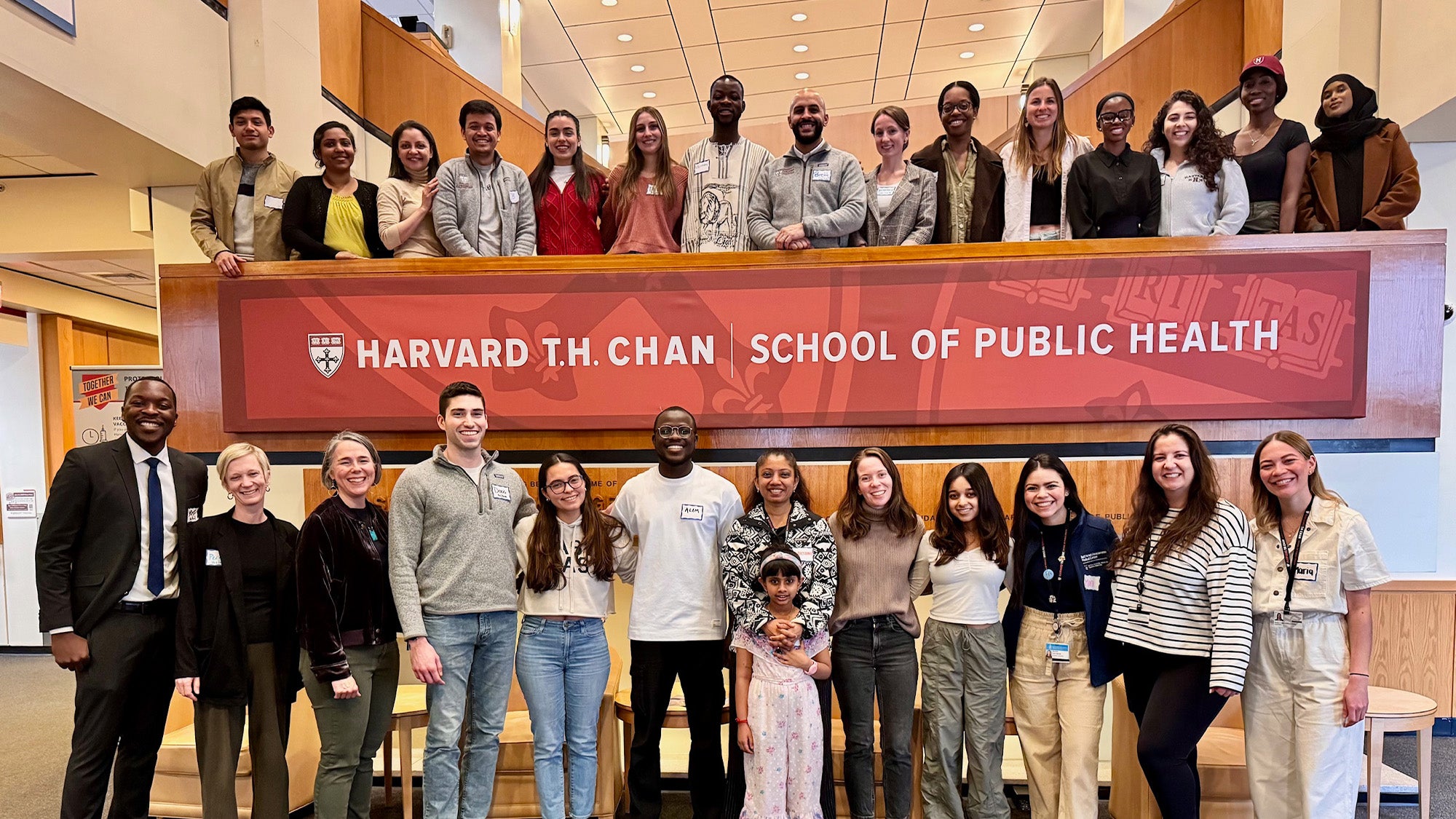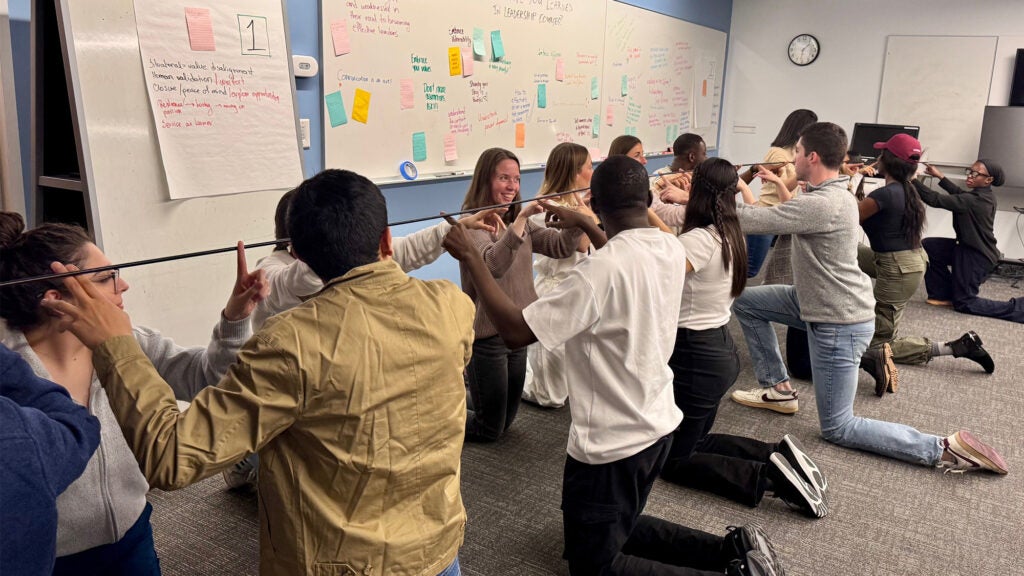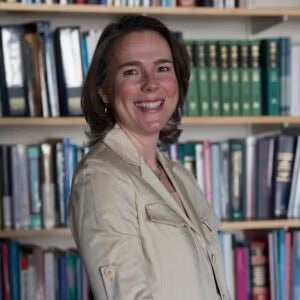Building students’ public health leadership skills

In early April, around two dozen students gathered at Harvard T.H. Chan School of Public Health to participate in a daylong retreat—the culmination of a year of work for the School’s Public Health Leadership (PHL) concentration.
The concentration, which is offered by the PHL Lab and open to students in all degree programs, allows students to hone their leadership skills by attending workshops, completing coursework, and receiving mentoring. At the retreat, students had the opportunity to connect with each other and discuss their experiences.
“The goal of the retreat is to harness the learning over the course of the past academic year that the students have done around leadership, both in our workshops and the course requirements,” said Fawn Phelps, director of leadership development and PHL Lab director.
Interdisciplinary approach to leadership
The concentration brings together students across diverse fields of study, from epidemiology to biostatistics to health policy. “We’re replicating the public health system, because public health doesn’t happen in discipline silos,” Phelps said.
During the fall semester, students complete a series of workshops to develop personal leadership development goals. For example, in one workshop, students conduct a self-assessment to determine their own leadership styles and identify areas for improvement. Connecting with fellow students during the workshops is a key part of the experience, according to Phelps. “It helps each student know they’re not alone in their leadership growth,” she said.
Then, over the spring semester, students have the opportunity to pair up with alumni and staff mentors for support, or receive executive coaching from the Office of Career and Professional Development.
As part of the PHL concentration, students are required to take 10 credits of coursework in addition to their other degree requirements. Courses in the concentration delve into specific areas of leadership, such as communication and entrepreneurship.
During the 2024–25 academic year, over 40 students completed the concentration. One of them was Aminu Osman Alem, an MPH student in global health. He said that he chose the concentration because during his previous work as a physician and public health advocate in Asia and Africa, he observed that poor leadership could be a barrier to implementing health system reforms.
“I joined this concentration to strengthen my communication and leadership skills—particularly to lead multidisciplinary teams, influence policy decisions, and design sustainable, equity-driven solutions,” Alem said. “The concentration’s experiential, evidence-based approach has been incredibly valuable.”
Tanesha Beckford, an emergency physician working toward an MPH in health management said, “I am dedicated to strengthening my leadership skills and being more cognizant of how my leadership has changed over time,” she said, adding that choosing the PHL concentration enabled her to achieve her goal of becoming “a more confident and reflective leader.”
Retreat focuses on teamwork
At the retreat, students began the day by reflecting on what inspired them to work in the field of public health. “We felt that, given the times that we’re in for public health, the students could be best supported if they had clarity around what is their purpose in public health, and what are their values that support it,” Phelps said.

Group exercises at the retreat highlighted the importance of teamwork in leadership. In one activity, students worked in small groups to design and build a small Lego structure. To simulate the various parts of a complicated organization, each group member was randomly assigned a different role in the process—including a director heading the project, a manager, and a builder who actually put together the Lego bricks.
“[The exercise] taught me the importance of staying calm under pressure and trusting my teammates,” Alem said. Noted Beckford, “Every person plays an important part—and the moment we forget that, we have lost sight of a critical piece of the puzzle. No role is too big or too small for the team.”
Beckford added that her biggest takeaway from the retreat was that effective leadership requires constant self-reflection.
“As public health leaders, we are committed to helping communities, and we tend to often ask, ‘What we can do for our communities?’ But sometimes, we need to take a step back and ask ourselves what the community has taught us,” she said. “For me, this means that we should not only strive to engage community, but become an integral part of the communities we wish to lead and serve.”
